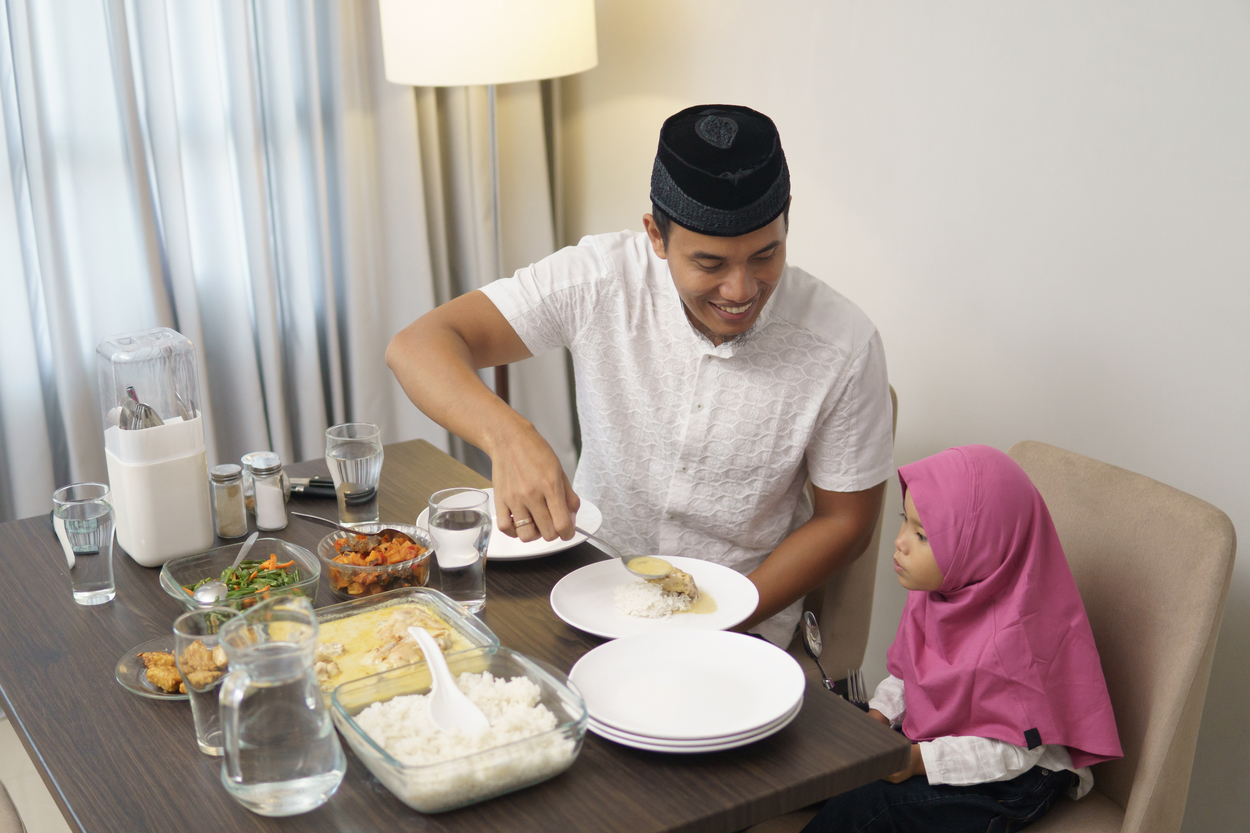
Physicians need to better understand beliefs and practices about Muslim pediatric fasting during Ramadan, according to a recently published study led by an alum of Oakland University William Beaumont School of Medicine.
“Pediatric Muslim Fasting Practices in Southeast Michigan: A Community Survey” recently was featured in the Journal of Community Health.
The study was led by Emman Dabaja, M.D., Class of 2018, OUWB, and a pediatrics resident at Children’s Hospital of Michigan.
The project has won four awards since 2018, and in early May, Dabaja appeared on the podcast “3 Peds in a Pod” — a show hosted by three other residents at Children’s Hospital — to talk about the evolution of the project and how the team behind it plans to take it further.
“Our hope is to do medical education…to go to different hospitals and talk about this subject, especially in the southeast Michigan region,” she said. “These are the communities we serve and our physicians should be able to hear and understand this.”
Additionally, she said, “the other phases of the project are also currently underway.”
A ‘first of its kind’ study
According to Pew Research, eight in 10 Muslims say they fast during the holy month of Ramadan.
This year, Ramadan is from April 23 through May 23 (annually, dates vary and are based on the lunar calendar).
Muslims fast from all water, food, and medications from dawn to dusk. Fasting is considered obligatory for all observant Muslims, including adolescents who typically start the practice at puberty. Depending on when Ramadan occurs, the fasting period can last up to 16 hours a day.
However, as the paper notes, “there is no existing data as to how many children or adolescents fast for Ramadan in the U.S.” Additionally, the practice has drawn controversy in parts of Europe where some have called it unhealthy for children.
“To date, the existing medical literature focuses on fasting among adult diabetics and pregnant patients with little attention paid to pediatric patients,” according to the paper written by Dabaja and her team.
“This study is the first of its kind in studying the widespread pediatric Muslim fasting practices, particularly in southeast Michigan, using a Community Based Participatory Research (CBPR) approach.”
The project focused on Michigan’s Wayne County, home to one of the largest, oldest, and most diverse populations of Arab Americans outside of the Middle East.
Further, Dabaja’s entire team identified as Muslim and are residents of southeast Michigan.
“Our research team is composed of community members of our target population, who intrinsically understand the dynamics and complexities of identifying as Muslim in America,” the paper states. “Everyone on the team had also been participating in Muslim fasting since a young age.”
‘An important first step’
The project, led by Dabaja, centers on data collected via survey in a variety of settings. The research team worked with several medical clinics, mosques, schools, and businesses, along with social media platforms.
Eligible participants had to identify as Muslim and be a parent or guardian of a child or children between the ages of 7 and 18.
Between July 2017 and May 2018, a total of 918 people took part in the initial survey. Of those, 70 percent said they live in Wayne County, 80 percent identified as Arab American, and 57 percent as immigrants to the U.S.
More than 63 percent of the respondents said the health care provider of their child/children was unaware of the pediatric fasting during Ramadan. Further, 75 percent said those same health care providers did not offer any medical advice regarding fasting.
Concurrently, as Dabaja noted on the “3 Peds in a Pod” podcast, parents and guardians want nutritional advice from pediatricians.
“The part that made me so encouraged is that about 70 percent of the participating parents said they really value their pediatrician’s advice and they thought really highly of them,” said Dabaja.
The study indicates that it is imperative that physicians become more aware of the fasting of pediatric patients during Ramadan.
“Because of the unique, annual, religious, and traditional nature of Ramadan celebration and practice, pediatricians must become more aware and educated regarding the prevalence of fasting among children and adolescents — as this practice continues to be a vibrant, celebrated way of life among Muslims worldwide,” the study concludes.
Since completing the first phase of the project, Dabaja and her team have won four awards:
- First place, Oral Presentation, 2019 Southeast Medical Consortium of Medical Education Regional Conference
- Third Place, Oral Presentation, 2019 CHM Sheldon Brenner Resident Research Competition
- Best Overall Trainee Poster Award at Section on International Child Health and Section on International Medical (SOCHI) Graduates at 2018 National American Academy of Pediatrics (AAP) Conference
- Best Poster at the University of Michigan 2018 Sujal Symposium
Dabaja said presentation at the conferences has essentially helped lead the project to its next phase.
“When we present our work at all these conferences with all these pediatricians, that is a question we constantly get asked…’Is fasting for children healthy, especially for diabetics?’” she said. “And that’s actually a question that we’re studying as we have approval from the research board to study this topic at Children’s Hospital of Michigan, where we have a lot of Muslim patients.”
For more information, contact Andrew Dietderich, marketing writer, OUWB, at [email protected].
Follow OUWB on Facebook, Twitter, and Instagram.
NOTICE: Except where otherwise noted, all articles are published under a Creative Commons Attribution 3.0 license. You are free to copy, distribute, adapt, transmit, or make commercial use of this work as long as you attribute Oakland University William Beaumont School of Medicine as the original creator and include a link to this article.

